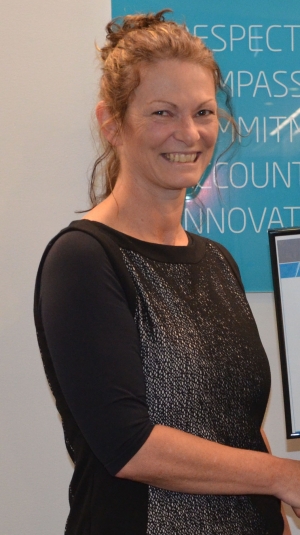Disadvantaged missing out on knee replacements
Research news
A recent study has discovered that people from lower socioeconomic status (SES) groups are less likely to receive knee joint replacements than the more affluent - despite a greater need for knee replacements in the lower SES groups.
The study was undertaken by researchers affiliated with Deakin’s Epi-Centre for Healthy Ageing and was led by Research Fellow Dr Sharon Brennan.
It uses data from the Australian Orthopaedic Association’s National Joint Replacement Registry to investigate the nationwide uptake of these surgeries in different socioeconomic groups over a 10-year period.
The study results were recently published in the journal “BMC Musculoskeletal Disorders.”
Dr Brennan explained that, until recently, there has been little Australian data on the social distribution of total knee joint replacement uptake, or joint replacements in general.
“The Epi-Centre is playing a key role in raising awareness of the social factors that influence joint and bone health,” she said.
“Osteoarthritis is a disease of the whole joint, and is one of the leading causes of disability, reduced quality of life, and increased pain.”
“We know that there is a greater prevalence of osteoarthritis in disadvantaged groups – potentially due to a number of different lifestyle and behavioural factors - and, therefore, there should be greater need for joint replacements in these cohorts.”
“A number of less well-off Australians with severe osteoarthritis are not accessing the significant benefits that knee replacements provide, in terms of reduced pain and improved quality of life.”
“The relatively accessible Australian public health system, in conjunction with private health options, should, in theory, result in few disparities in health care utilisation. Yet this is not what we are seeing,” she said.
Dr Brennan is Head of the Social Epidemiology Unit, nested within Deakin’s Epi-Centre for Healthy Ageing - and a Research Fellow of the Australian Institute for Musculoskeletal Sciences.
She explained that, overall, a total of 213,018 (57.4%) primary total knee replacement surgeries were performed for a diagnosis of osteoarthritis during 2003-10 across Australia.
“In simple terms, the most socially disadvantaged 20 per cent of all Australians were about two thirds less likely to undergo knee joint replacements, compared to the most advantaged 20 per cent of Australians,” she said.
Whilst not fully understood, Dr Brennan surmised that the reduced uptake in disadvantaged groups could be due to costs associated with post-surgery recovery, more limited social support, patient willingness, or longer waiting lists within the public health system.
“The findings suggest that we need to identify the factors associated with the uptake of knee joint replacement in different socioeconomic groups, which could help to enhance resource planning and promote more equitable utilisation of surgery for those people experiencing end-stage osteoarthritis,” she said.
Dr Brennan is currently finalising an investigation of whether the uptake of shoulder joint replacements also varies across socioeconomic groups or geographical regions. She expects the results will be available soon.
Share this story
 Dr Sharon Brennan.
Dr Sharon Brennan.
